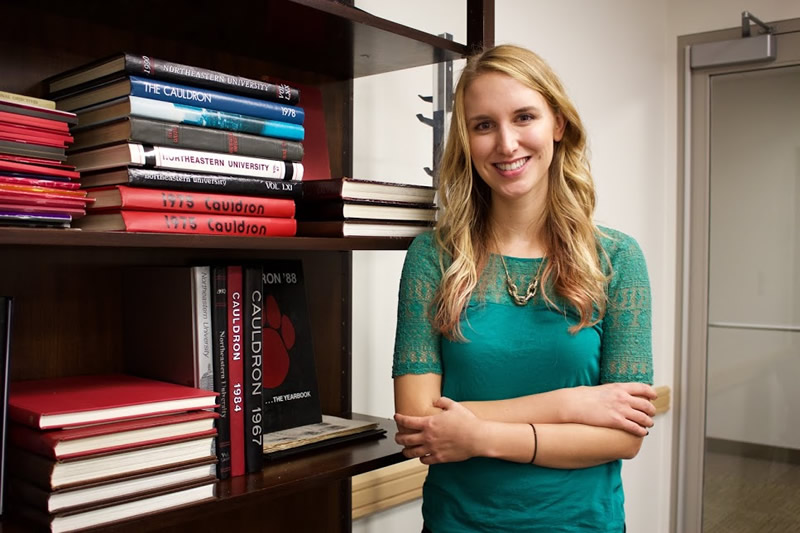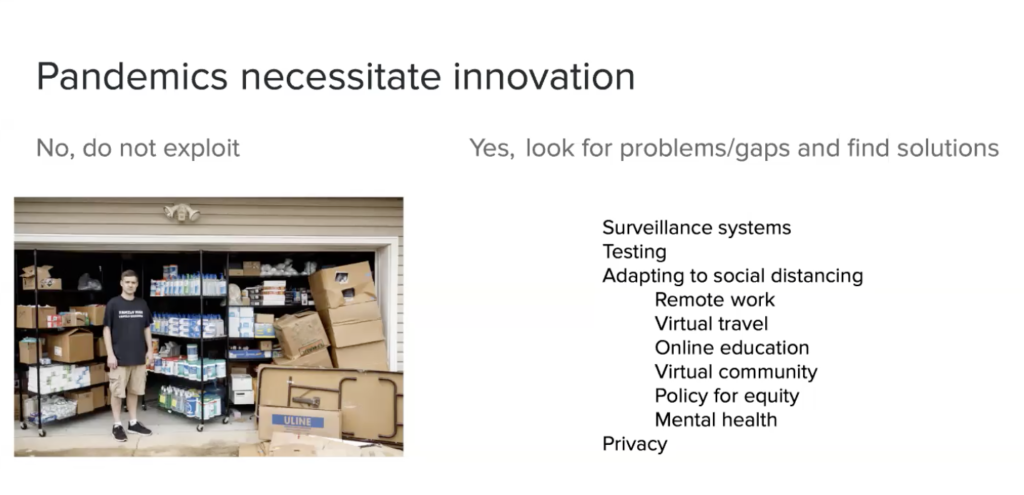

Pandemics necessitate innovation and this is the time to act, says Dr. Renee Wurth, a population health scientist who spoke at SCET’s first remote Richard A. Newton Lecture Series on Tuesday night.
Dr. Wurth believes that although the world is in the midst of a global pandemic, this is a time to stay positive and focus on the ways each of us can make a difference. The Newton Lecture series is full of 300 budding innovators and entrepreneurs who are eager to change the world. The course allows UC Berkeley students to learn about the innovative mindsets of prominent entrepreneurs.
“[This pandemic] is an opportunity to showcase America’s innovation. This is the situation we’re in, so let’s make the most of it,” Dr. Wurth said.
Dr. Wurth spoke about her experience in population health and epidemiological research at Northeastern University, where she got her Ph.D, and the Harvard T.H Chan School of Public Health, where she completed her post-doc. Dr. Wurth currently works as a research scientist for Flux, a people operations platform. She was a co-founder while at Harvard, based out of Harvard Innovation Labs.

During her lecture, Dr. Wurth answered 100+ questions that were pre-submitted by students, via “raised hands” during the session, or in written Q & As during the session.
She began her discussion of the novel coronavirus (COVID-19) by explaining that the virus poses a bigger threat to the entire population than it poses to the average college-aged individual.
When asked, “what are the health risks for students of our age?” Dr. Wurth assured the audience that most college students have a low risk of fatality, however other, older groups are at a very high risk and individual actions contribute to the overall health of the population.
“You have to consider population level risk when thinking about your own individual habits and actions,” said Dr. Wurth. This means practicing social distancing and hand washing. She told the audience to act as though they have the virus, as to avoid spreading it to more vulnerable populations. Because there is a lack of testing ability, many young people may be carriers and not know they’re spreading the virus, she added.
Dr. Wurth affirms that the Bay Area shelter in place notion is appropriate because COVID-19 passes from person to person at an exponential rate, and the U.S. lagged in response to the virus. “Shelter and stay” allows scientists to better monitor the population and “flatten the curve.”

“It is chaotic and out of control and we don’t have information on who has the disease,” she added. “We’d like to not be on the trajectory of Italy; our goal is not to replicate Italy.”
Dr. Wurth explained that COVID-19 is far more contagious than seasonal influenza. Each individual with COVID-19 infects on average 2.5 other people (this concept is called the reproduction number, or R0). By contrast, individuals with seasonal flu infect on average 1.3 others. The population lacks immunity to coronaviruses, unlike influenza viruses. There is a lack of herd immunity to COVID-19 and no available vaccine.
According to Dr. Wurth, herd immunity is not a viable option for the current COVID-19 pandemic because it would overwhelm American hospitals and the population would experience mortality. She added that this may change with the eventual development of a vaccine.
With the coming warmer months, social distancing becomes more natural. However, this does not mean it will drastically slow the spread of COVID-19, due to its high R0 value. For the time being, we must continue extreme social distancing and cannot rely on the change of seasons to alter the course of transmission.
“No one is out of risk,” she emphasized.
Dr. Wurth explained that the best way to help stop the spread of disease is to practice social distancing and not hoard supplies. “We can’t be reactive, we have to be proactive,” she insisted.

Throughout her lecture, Dr. Wurth emphasized that we’re “learning from a pandemic during a pandemic.” Much of the research on COVID-19 comes from assessing its trajectory in China, South Korea, and Italy. Epidemiological data is being collected in real-time, so it won’t accurately represent the pandemic for some time.
“Instead of thinking: wow this is such a big problem, think: how can I help solve this?” said Dr. Wurth. “[And throughout social distancing,] how will we feel humanly connected?”
SCET Startup Semester students Anushka Purohit and Anupam Tiwari have already begun innovating in the midst of COVID-19 with the development of Coronapp, a COVID-19 tracker powered by CDC/WHO data. Purohit and Tiwari teamed up with Haas MBA students and UC Berkeley School of Engineering students for the project.
